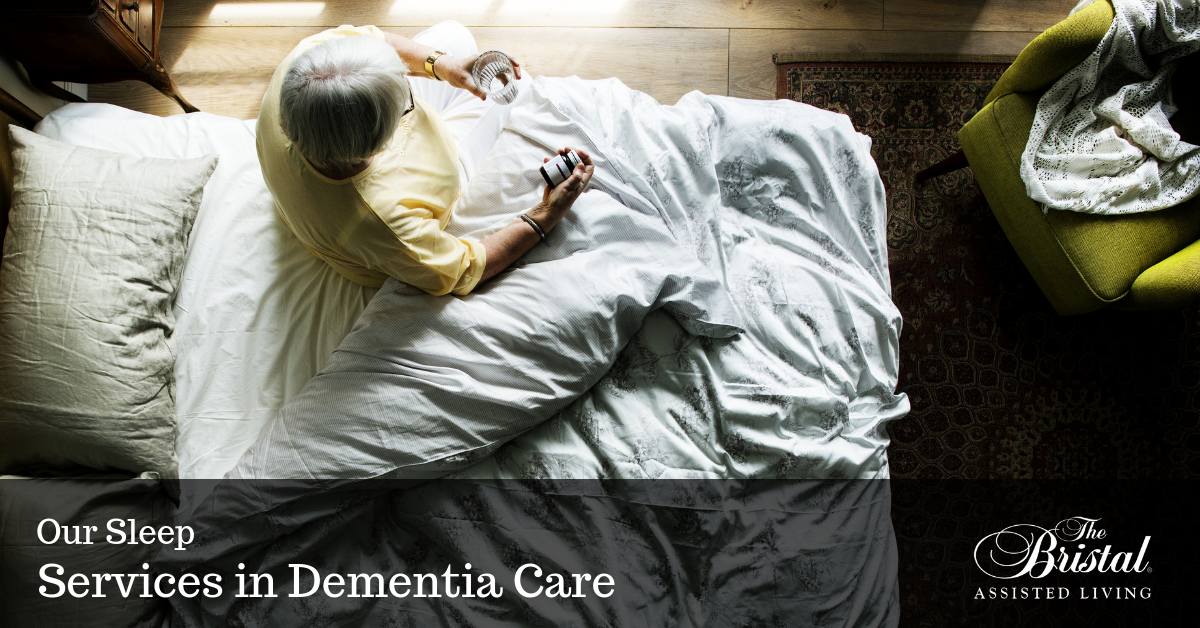When you are the caregiver for a loved one diagnosed with dementia, it can be an emotional and sometimes stressful experience. You may be seeing instances where your parent may not recognize you at times or just aren’t acting like they always did. Then at night, you may see another set of challenges.
Confusion and Other Sleep Disturbances
Sleep disturbances can be common in individuals showing signs of memory loss or who have been diagnosed with Alzheimer’s disease or another type of dementia. Your parent may wake up confused, such as in the middle of the night and believe it is time to start their day. He may revert back to a work schedule he had when he was younger or he may seem to have his day and night confused and is sleeping during the day and awake at night.
If you’re a caregiver and your loved one is waking upset or confused, the best thing you can do is validate your loved one is upset and talk with them and comfort them. While the method may vary from person to person it is important to have an in-depth knowledge about the individual.
At The Bristal Assisted Living, our Reflections staff follow an individualized service plan and a resident profile. The profiles show past and present likes, dislikes, patterns, interests, abilities, and needs, so that our staff members are able to comfort your loved one in a knowledgeable manner.
Related Blog: Behavioral Changes: Tips for Caregivers
Measures Caregivers Can Use to Promote Better Sleep
There are a few measures caregivers can do to lessen their loved one’s dementia-related sleep issues at night, such as:
-
- Provide stimulating therapeutic recreation during the day
- Exposure to outdoor or natural light
- Create a ritual and hold to it to promote good sleep patterns
- Follow similar sleep recommendations for the general population, taking into consideration dementia, like no electronics, caffeine, etc.
- Incorporate aroma and music therapy
- Offer a comfortable bed and pillow
- Encourage proper food intake
- Use the bathroom prior to bed
The Bristal Assisted Living provides the above to residents in our Reflections memory care areas as part of our individualized services. The Bristal is able to provide a standard mattress and bedding at our communities; however, we encourage bringing your own furniture, bedding, and pillows, as each person has different preferences.
Try Activities During the Day to Help Alleviate Sleep Issues
You can also incorporate activities during the day to help alleviate sleep issues at night, like therapeutic programming your loved one would be interested in. Adaptive physical programs are always good because they decrease boredom, so the person is active in the daytime. If your parent sleeps well during the night, naps are fine during the day - just watch the duration of the nap, or make it earlier in the day if they start showing signs of difficulty sleeping.
At The Bristal Assisted Living, our Reflections memory care programming includes adaptive physical, cognitive, social, religious, outdoor, and cultural activities, as well as various supervised trips and outings. Remember: keeping the body, mind, and spirit engaged is important, so that when it is time to go to sleep, the body, mind, and spirit is willing!
Establish Bedtime Rituals to Alleviate Stress
Individuals with dementia can pick up on a caregiver’s stress level, so one suggestion to help alleviate your own mental exhaustion would be to start rituals in both of your schedules. Getting a person ready for bed will take time; but with a ritual, it will get easier over time.
One of the ways we incorporate bedtime rituals at The Bristal is by using “sleep hygiene” to utilize the social and physical environment to promote a healthy sleep pattern and sleep experience. Your loved one’s routine is important at The Bristal, so our staff keeps a schedule so that the resident wakes up and goes to sleep at a similar time each day and night.
Educate Yourself About Dementia and Sleep
If you’re a caregiver to a loved one who has been diagnosed with dementia or who is showing signs of memory loss, be sure he or she gets a full diagnostic workup and exam, and follow up.
Always check with your loved one’s doctor about medications, as certain substances -- such as some pain relievers -- and alcohol, nicotine, and caffeine can also exacerbate sleep issues in persons with dementia.



